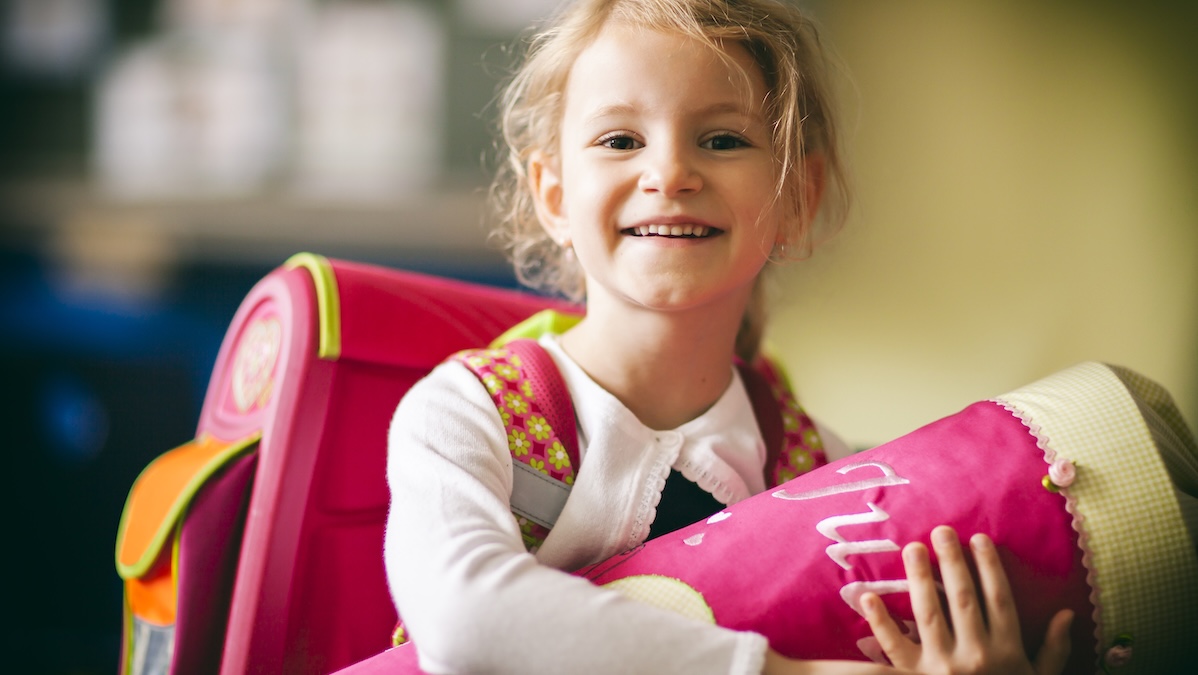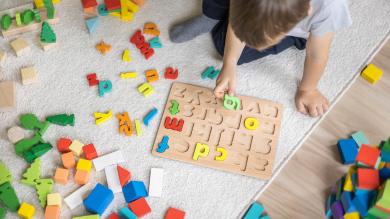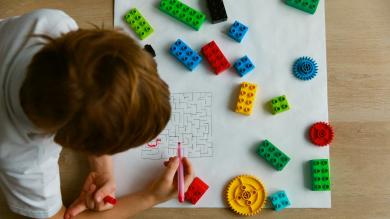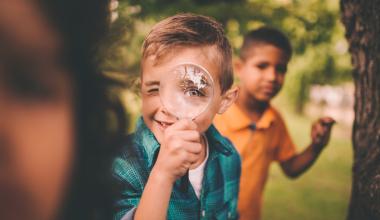
Back to school checklist: What do I need for my child?
For children and parents, the transition from childcare center to school is an exciting chapter. They get excited, prepare, organize and plan everything important in the background. Our pme parent consultant Katrin Drescher explains how parents can keep a cool head during this time.
How to start school successfully?
Parents whose first child is starting school are often unsure about how to prepare for the start. Our school start checklist shows what really matters and how you can prepare your child in the best possible way.
The pme checklist for school starters
1. books and other teaching materials
Schools provide information about the books and teaching materials they need by post or on their website. You should order early and budget accordingly. If, for example, you have to buy the books yourself or you need sneakers for sports lessons, the costs can quickly mount up.
Depending on the federal state and, in some cases, the income of the parents, books are either fully or partially co-financed by the city or local authority or provided on loan for a school year. This is handled differently from state to state as well as in the municipalities.
Free webinar on 08.09.2025 from 13:00-13:30 (The recording is still available until 16.10.)
In this short presentation "Learning to read with pleasure", find out what you as parents can do to teach your children to enjoy reading right from the start and thus give them a key to a world full of imagination and knowledge.
2. way to school
How your child gets to school should be well prepared. If your child is traveling by bus, remember to apply for a bus ticket in good time. Ideally, you already know other parents with whom you can form carpools for unplanned events (e.g. the bus does not come or it is heat-free).
Whether on foot, by bike, car or bus, it is always important to practise the route to school properly beforehand so that the children feel safe. Ideally, you should look for schoolmates with whom your child can walk or ride to school together.
As so-called "parent cabs" endanger other schoolchildren on the way to school and can sometimes cause chaotic traffic conditions in front of schools, you should, if possible, instruct your child to walk to school independently . It promotes self-efficacy and social interaction if your child makes the journey to school together with school friends.
3. less is more
Especially for children starting school, it is important not to overfill the school bag and to pay attention to the weight. Therefore, organize the materials, pencil case, etc. and design the satchel clearly together with your child. This will help them keep an overview.
4. leisure time
The time after school should really be free. Especially in the first few weeks, it is advisable to plan few leisure activities. Stay as flexible as possible when it comes to organizing after-school activities.
The start of school is an intense time for children starting school, and they are often exhausted after school. It therefore makes sense to give the children less input in the afternoon, at least for the first time, so as not to overwhelm them, and instead give them free time to meet up with new school friends if necessary.
5. new hobbies
The same principle applies to new hobbies. First of all, the children should really settle in at school before trying out new leisure activities. Therefore, don't start until the fall vacations at the earliest .

6. find routines
In the first few weeks of school, you should make sure to stick to the same after-school routine and develop routines (e.g. first break, then lunch and then homework). This will give your child the chance to get used to the new rhythm, take breaks and establish routines.
7. homework
If homework is supervised at home, you will initially remain close by as a contact person for the children. This provides security, especially in the first few weeks.
If the children do their homework in after-school care/after-school care, plan times when you can check their homework together. Ideally, not immediately before the evening routine, but earlier so that your child is still receptive and can catch up on any additions (forgotten tasks, reading practice, etc.).
8. parents as a haven of peace
If your children are impatient and overwhelmed, try to remain calm and patient and not to exert any pressure. In this way, you can avoid creating a negative association with homework and school right from the start - all beginnings are difficult :)
We wish all children and their parents a successful start to school!
The pme parent counseling service
Our parent counselors support parents in all matters from pregnancy to the child's adulthood. Personal and confidential: we are there for you online, by phone and on site. You can find more information on the pme parent counseling page.









.jpg/52187468-e3fa-8a11-3249-4d1c94cdfaff/52187468-e3fa-8a11-3249-4d1c94cdfaff?imageThumbnail=2)
.jpg/2f7ea10d-1b42-d42a-f3a3-f6873c0e5442/2f7ea10d-1b42-d42a-f3a3-f6873c0e5442?imageThumbnail=2)
